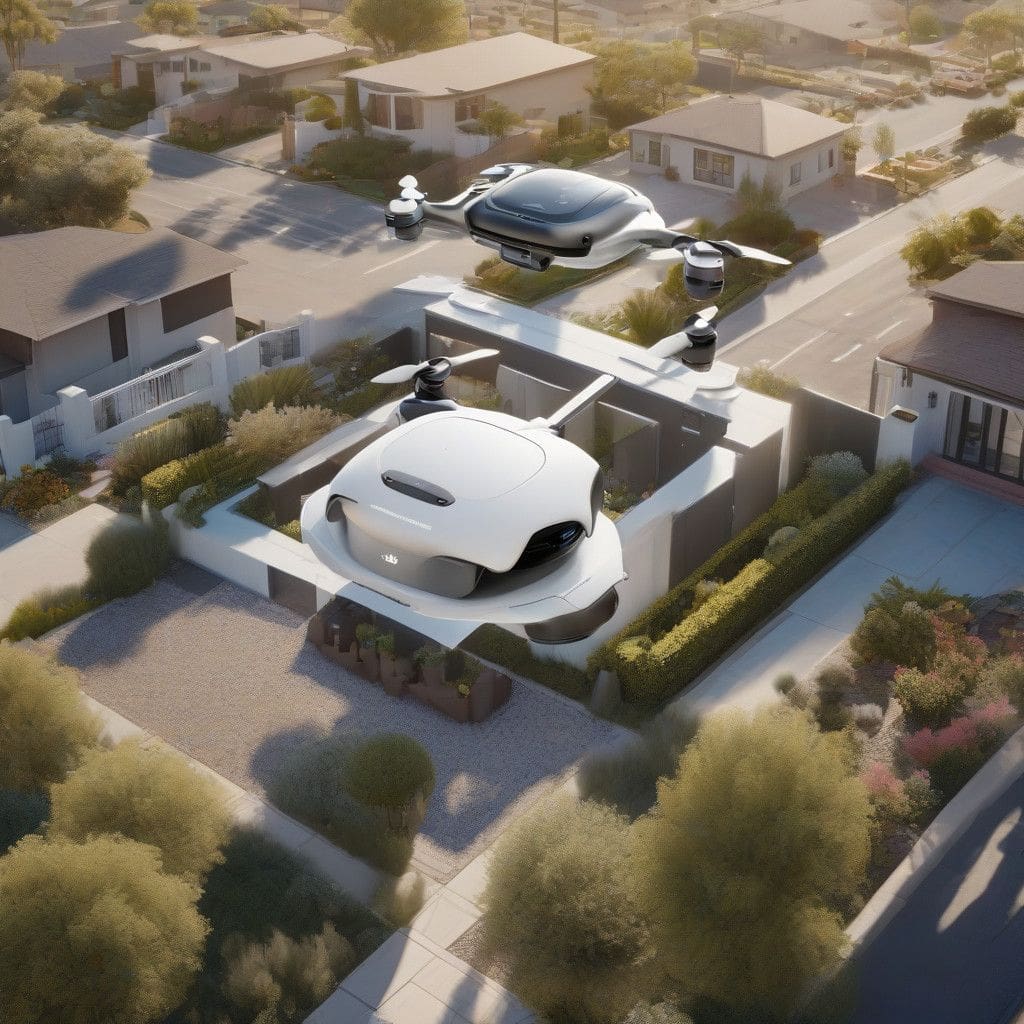Amazon has recently revitalized its drone delivery service, reintroducing its Prime Air program specifically in the Phoenix, Arizona area. This service allows customers to receive packages weighing five pounds or less in a remarkably short timeframe—often within an hour. With a wide selection of around 50,000 items available, Amazon aims to enhance convenience and efficiency for its users.
The decision to resume drone operations follows a brief pause, during which the service was discontinued in California. However, Amazon is now focusing its efforts on the West Valley Phoenix Metro Area, where customers can select their delivery location during checkout. This innovative approach not only streamlines the delivery process but also positions Amazon as a major player in the rapidly evolving logistics landscape.
Integral to this operation is Amazon’s advanced MK30 drone. Recently authorized by the Federal Aviation Administration (FAA) to operate beyond the pilot’s line of sight, the MK30 has several enhancements that boost its delivery capabilities. Notably, it operates with greater efficiency in inclement weather conditions, such as light rain, while maintaining a quieter flight profile. This drone is tailored for daylight operations and is part of Amazon’s ongoing commitment to achieve environmentally-friendly delivery methods. The MK30 is also being tested in College Station, Texas, for delivering prescription medications.
The strategic integration of drone deliveries into Amazon’s existing same-day delivery network reflects an ambitious vision for the future of logistics. By utilizing advanced technology to reach consumers rapidly, Amazon reduces its reliance on traditional delivery methods, potentially lowering operational costs. This pivot towards drone logistics exemplifies how the company is responding to growing consumer demand for faster services, particularly in the e-commerce sphere.
Amazon has ambitions to expand drone delivery services beyond the U.S. Market insights indicated plans to roll out services in the UK and Italy by year’s end. However, as of now, updates regarding these international expansions have not emerged, leaving stakeholders curious about the specific timeline for broader service availability.
While this evolution in delivery technology brings countless advantages, it is essential to consider the accompanying regulatory and operational challenges. The FAA’s approval signals a significant step toward wider acceptance of drone operations, yet regulations can vary significantly by region and country. As Amazon pushes the envelope with drone deliveries, it will need to navigate these complexities carefully to ensure seamless operations while adhering to local laws.
The relaunch in Phoenix serves as a noteworthy illustration of how innovative logistics solutions can effectively meet consumers’ growing expectations. As urban areas like Phoenix implement this technology, it is likely to shape the future of last-mile delivery, an area traditionally fraught with delays and challenges.
In conclusion, the return of Amazon’s drone delivery service in Phoenix not only introduces an exciting dimension to e-commerce but also highlights the broader trends toward automation and rapid, customer-centric service operations. As businesses continue to pioneer technological advancements, it will be critical to monitor their implications for the logistics industry and consumer behavior.












